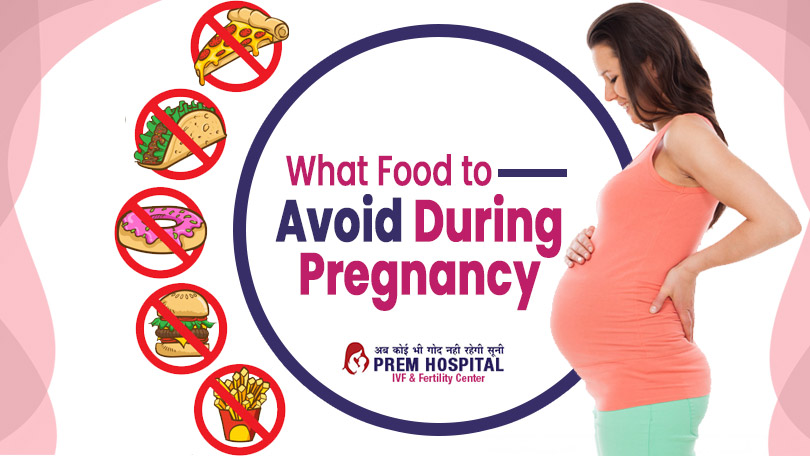Pregnancy is considered to be one of the most difficult as well one of the best moment in a women’s life when an offspring or a child develops inside her womb during a period of 40 weeks. This seems to be the most sensitive period in a women’s life when she is given the responsibility of taking care of another life growing inside of her. It is a period when she has to take utmost care of herself. Women become so engrossed and excited in planning about the future that they forget to maintain a proper diet which is mostly the primary reason for many problems during pregnancy which sometimes ends up affecting the child as well.
Below are some important food habits to be maintained during pregnancy
Foods to avoid during pregnancy
- Raw fish or undercooked fish: Raw fish can cause several infections which can be viral, bacterial, or parasitic infections, such as norovirus, Vibrio, Salmonella, and Listeria. Some of these infections may just cause weakness and dehydration but others matbe passed on to the child and cause serious fatal consequences.
- Undercooked or raw meat: Eating undercooked or raw meat increases the risk of infection from several bacteria or parasites, including Toxoplasma, E. coli, Listeria, and Salmonella. Bacteria may threaten the health of the little one which may possibly lead to stillbirth or severe neurological illnesses like intellectual disability, blindness, and epilepsy. It is advised not to eat meat unless reheated or steaming hot.
- Raw eggs: Raw eggs can be contaminated with the Salmonella bacteria whose symptoms are fever, nausea, vomiting, stomach cramps, and diarrhea. There are rare cases where in the infection may lead cramps to the uterusand can cause premature birth or stillbirth. The commercial products which contain raw eggs are usually prepared with pasteurized egg and are therefore, safe to consume.
- Caffeine: We rarely find anyone who is not addicted to coffee or tea which a primary source of caffeine. However, pregnant women are advised to limit their caffeine intake to only 200 miligrams per day. According to the American College of Obstetricians and Gynecologists (ACOG), Caffeine is absorbed very quickly and is easily passed into the placenta. Babies and their placentas don’t have the main enzyme needed to metabolize caffeine which can lead to high levels of build up. High caffeine intake at the time of pregnancy can affect the growth of the fetus and creates the risk of low birth weight at delivery.
- Unpasteurized milk, cheese and fruit juice: Unpasteurized milk, cheese and soft ripened cheese can contain several bacteria like Listeria, Salmonella, E. coli, and Campylobacter. Unpasteurized juice is also prone to bacterial contamination. These infections can have life threatening consequences on the unburned baby.
Also Read:
Secondary Infertility
Infertility food
- High sugar level: Food with high sugar levels are considered to increase the risk of infertility. White rice, French fries, mashed potatoes, rice cakes, donuts, pumpkin and cornflakes are few foods which have increased sugar levels and can cause infertility among women.
- Caffeine: Caffeine products especially coffee can lead to infertility among women. Consuming more than 300 gms of coffee per day can increase the chances of infertility and therefore, It is advised to quit having coffee for a while if a woman is planning to conceive.
- Trans-fat: Food rich in Trans fat is considered a major factor affecting the fertility of a woman. Some common examples of food rich in trans fat are fast food, packaged food, frozen and baked foods.
- Unpasteurized cheese: Cheese which is not made with pasteurized milk can cause infertility among women. Food containing soft cheese should be avoided if it is not made with pasteurized milk as it contains a bacteria named Listeria has the capability to cross the placenta and affect the uterus.
Fertility Food
- Food rich in antioxidant: Antioxidants like folate and zinc may improve fertility for women. They deactivate the free radicals in the body, which can damage the egg cells. There is still debate going on about how much antioxidant will or will not affect the fertility but there is evidence pointing towards the potential.
- Better breakfast: A substantial breakfast helps women with fertility problems. A study proves that a larger and healthier breakfast is way of improving the hormonal effects of polycystic ovary syndrome (PCOS) which is considered to be a primary cause of infertility. For an average women with PCOS, consuming most part of their calories at breakfast reduces insulin levels by 8 percent and testosterone levels by 50 percent whereas high levels of them can contribute to infertility.
- Swap protein sources: Replacing animal protein with vegetable protein sources is said to increase the rate of fertility. A study represented that taking 5 percent of total calories from vegetable protein by replacing animal protein can decrease the risk of ovulatory infertility by more than 50 percent.

